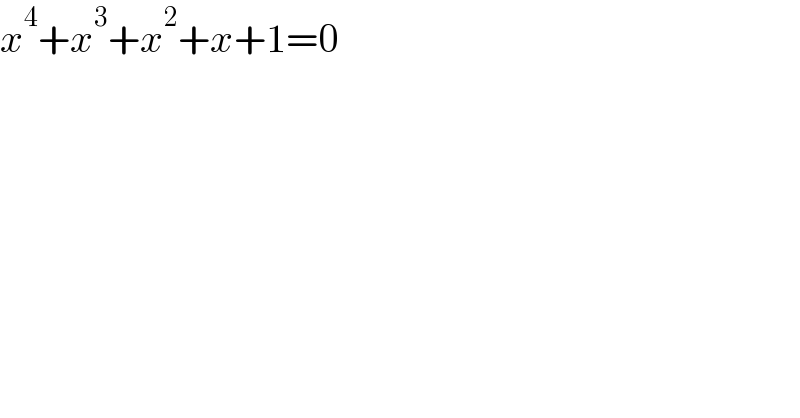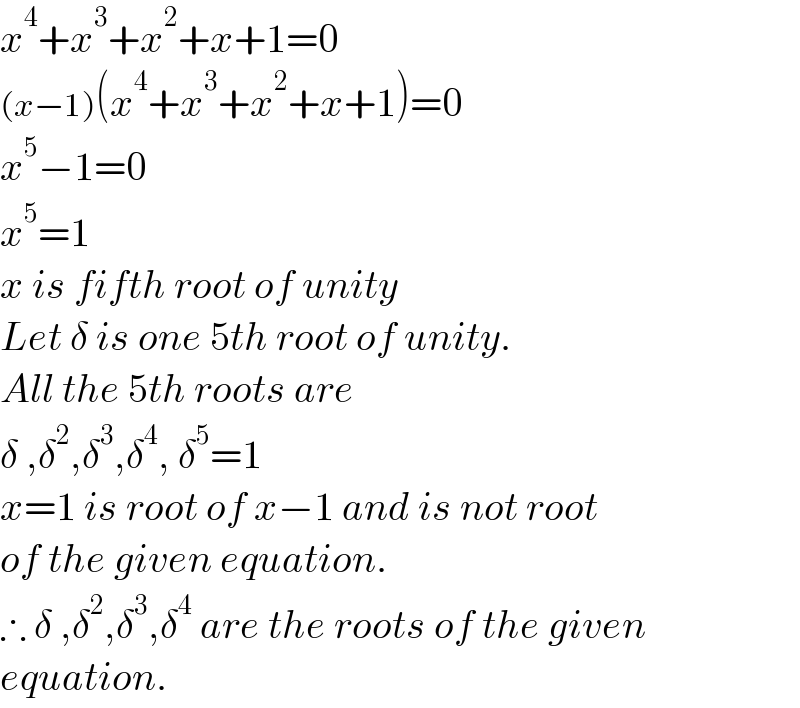
Question and Answers Forum
Question Number 173839 by Khalmohmmad last updated on 19/Jul/22

Commented by mr W last updated on 19/Jul/22

Answered by mahdipoor last updated on 19/Jul/22

Answered by Rasheed.Sindhi last updated on 19/Jul/22

Answered by BaliramKumar last updated on 20/Jul/22
![x^4 +x^3 +x^2 +x+1=(x^2 +ax+1)(x^2 +bx+1)=0 x^4 +x^3 +x^2 +x+1=x^4 +(a+b)x^3 +(ab+2)x^2 +(a+b)x+1=0 a+b=1 ab+2=1 a = (((√5)+1)/2) b = −(((√5)−1)/2) x^4 +x^3 +x^2 +x+1=[x^2 +((((√5)+1)/2))x+1][x^2 −((((√5)−1)/2))x+1]=0 x^2 +((((√5)+1)/2))x + 1 = 0 & x^2 −((((√5)−1)/2))x + 1 = 0 .....................](Q173860.png)
